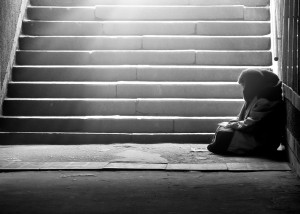Contributed by Scott Mims, Virginia Beach, VA
Warm-up Questions
Have you ever heard the little rhyme, “Sticks and stones may break my bones, but words will never hurt me?” Do you believe it’s true? Why or why not? What is the most encouraging thing that you can remember someone saying to you? How did it make you feel?
Sticks and Stones
The suicide of Phoebe Prince, on January 14, 2010, brought international attention to the problem of bullying in U.S. schools. Prince, a 15 year old freshman, had moved from Ireland to South Hadley, Massachusetts, where she suffered months of bullying from school classmates, both physically and over the internet. On March 29, 2010, nine teenagers were indicted on charges which included statutory rape, violation of civil rights with bodily injury, criminal harassment, and stalking. Their trials are set to begin later this year.
Despite an increased awareness of its extent (especially as practiced through such means as text messaging and social media), bullying is proving to be an extremely difficult problem to contain. In one recent study, 77 per cent of those asked reported being bullied at some point. And though their deaths were not as widely publicized as the suicide of Phoebe Prince, other teens haven taken their own lives as a result of bullying.
For two other examples see: http://ksax.com/article/stories/s1928689.shtml and http://www.wpxi.com/news/26520571/detail.html
Discussion Questions
- Do you believe bullying or cyber-bullying is a problem in your school or setting? If so, do you think the problem is getting worse?
- Have you or a friend ever been the victim of rumors, gossip, or bullying? What was the experience like? How did it affect you? Did anyone stand up for you or your friend, and if so, what was that like?
- Have you ever used rumors, gossip, or other acts to get back at someone? In the end, what was the result?
Scripture Texts (NRSV) for Sunday, February 13, 2011 (Sixth Sunday after Epiphany)
Text links are to Oremus Bible Browser. Oremus Bible Browser is not affiliated with or supported by the Evangelical Lutheran Church in America. You can find the calendar of readings for Year C at Lectionary Readings.)
For lectionary humor and insight, check the weekly comic Agnus Day.
Gospel Reflection
 This week’s gospel lesson continues Jesus’ Sermon on the Mount, a section of teaching that is directed primarily to his followers and disciples. What is especially notable about these verses is the pattern which Jesus uses. “You have heard that it was said…But I say to you….” It is a pattern that points both backward and forward. It points backward to the Torah (the Law) and to the oral tradition surrounding Torah’s interpretation; it points forward to Jesus’ true identity as the One sent from God who has the authority to interpret Torah rightly. As we heard in last week’s gospel lesson, Jesus did not come to abolish either the Law or the Prophets, but to fulfill them (Matt. 5:17-18). As it is, Jesus’ teaching in this passage gets to the root of things, demonstrating that the commands of the Law have at their heart a blueprint for what it means to be fully, genuinely, and gloriously human within a covenantal relationship with God.
This week’s gospel lesson continues Jesus’ Sermon on the Mount, a section of teaching that is directed primarily to his followers and disciples. What is especially notable about these verses is the pattern which Jesus uses. “You have heard that it was said…But I say to you….” It is a pattern that points both backward and forward. It points backward to the Torah (the Law) and to the oral tradition surrounding Torah’s interpretation; it points forward to Jesus’ true identity as the One sent from God who has the authority to interpret Torah rightly. As we heard in last week’s gospel lesson, Jesus did not come to abolish either the Law or the Prophets, but to fulfill them (Matt. 5:17-18). As it is, Jesus’ teaching in this passage gets to the root of things, demonstrating that the commands of the Law have at their heart a blueprint for what it means to be fully, genuinely, and gloriously human within a covenantal relationship with God.
As such, the commands that Jesus gives here are not moral admonitions – a set of do’s and don’t’s – by which persons might attempt to make themselves “good enough” for God, but rather a picture of life in the renewed and renewing community that God brings into being through the life, death, and resurrection of Jesus. God is serious that God’s people know life, and so murder is attacked at its very root: smoldering anger and words which only serve to tear down or abuse. God is serious about life-giving relationships grounded in mutuality, love, and respect, and so lust and lies–attitudes and actions that disrupt even the most fundamental relationships of marriage and family–are also attacked.
Yes, God is serious that we know life. So serious, in fact, that Jesus drives home the point with another feature of this passage, wildly exaggerated images which tickle the imagination. Verses 29 – 30 contain obvious examples. Plucking out eyes and cutting off hands are not to be taken literally, but we get the point. In your discussion, you may also want to point out the rather comical picture in verses 23 – 24 of traveling all the way to the Temple in Jerusalem (at least a three day journey by foot for many of Jesus’ hearers), buying an appropriate sacrificial animal, suddenly remembering a relationship gone wrong, and then leaving your “gift” to hang out on its own in the Temple while you spend a week on a round trip just so you can make things right. It just wouldn’t happen. And yet here again the point is clear. We are called to live out day by day the forgiveness we ourselves have received from God, so that when we come to worship there is no anger between us and our neighbors, especially when these neighbors are our sisters and brothers in Christ.
This is a passage pregnant with possibilities for study and discussion. And while the following questions focus on the power of our words, especially as we strive to be for one another a radical community of love and grace, you might also talk together about such counter-cultural themes as forgiveness (Matt. 5:23-26), sexual purity (Matt. 5:27-30), what makes for true and faithful relationships (Matt. 5:31-32) and personal integrity (Matt. 5:33-37).
Discussion Questions
- As you read this passage, what are the verses that jump out at you? Why?
- Do you believe that it is possible to follow Jesus’ commands in this portion of the Sermon on the Mount? If you say “Yes,” what do you make of verses 22-23 and 28-30? If you say, “No,” then why do you think Jesus would give us commands and instructions that he knew we cannot keep?
- Knowing that Jesus is talking primarily to his followers and disciples, what do his teachings here say about our relationship with God? Do you believe they are prescriptive – something we have to do in order to have a relationship with God, or descriptive – a picture of the life God would have us to know and enjoy?
- By addressing dealing with anger and our use of insults and language intended to hurt or tear down another person, how does Jesus get at the root of murder? Is it possible to “kill” another person without harming them physically?
- What do Jesus’ words say to us about our relationships with one another as Christian brothers and sisters? How would our group look if we were as quick to forgive and lovingly careful with our words, thoughts, and actions as Jesus calls us to be? What specific things might we do to encourage one another more?
Activity Suggestions
- Catechism Connection Read together Martin Luther’s explanation of the Eighth Commandment in the Small Catechism. Discuss together the following:
According the Luther, in what ways do we “murder” or “destroy” people with our words?
Looking at the positive actions in the Small Catechism, what are some of the ways in which Martin Luther says that we can live out our faith when it comes to using our words? Can you think of specific examples of how this might look in your everyday lives? Make a list and covenant together to try out some of what you come up with.
If there is anyone that you know who you believe is currently the focus of rumors, gossip, or bullying, consider the things that you might do to be for that person an alternative community of love, support, and grace.
- Wounded Healers Give participants a few minutes to think of a time when they have been hurt. It can be a physical hurt like a broken arm, or another type of “hurt,” such as a broken heart or a damaging comment. Have them come up with a motion that in some way symbolizes their hurt. Bring the group back together and have each person demonstrate their motion without talking. Choose about a third of those who are participating to be “wounded.” The rest are “healthy”. Again without talking, it is the job of the healthy ones to come alongside those who are wounded and to help them by taking on their motion. Those who are wounded should not give up their “hurt” until those helping them truly understand (that is, have copied their motion exactly). Once they have given up their hurt, they become healthy and can help others. Continue as long as the group remains interested.
Debrief:
What was it like to have someone try to really understand your wound?
What was it like to try to truly understand someone else? What did it take?
What do you think the main point of this activity is?
How is this activity a picture of what it means to be an intentional Christian community?
Note: You might also read “The Ragman” by Walter Wangerin, Jr.
Closing Prayer
Gracious and loving God, in the waters of baptism you name us and claim us and make us your own. Thank you for the gift of new life and for the invitation to experience that life in the community of your church. Fill us with your Spirit. Guide our thoughts, our words, and our actions, that we may build one another up and not tear each other down. Make us quick to forgive and eager to be your hands and voice in a world so hungry to experience good news. In Jesus’ name we pray. Amen.




